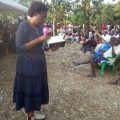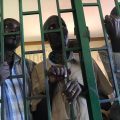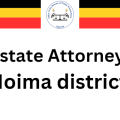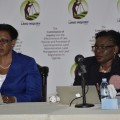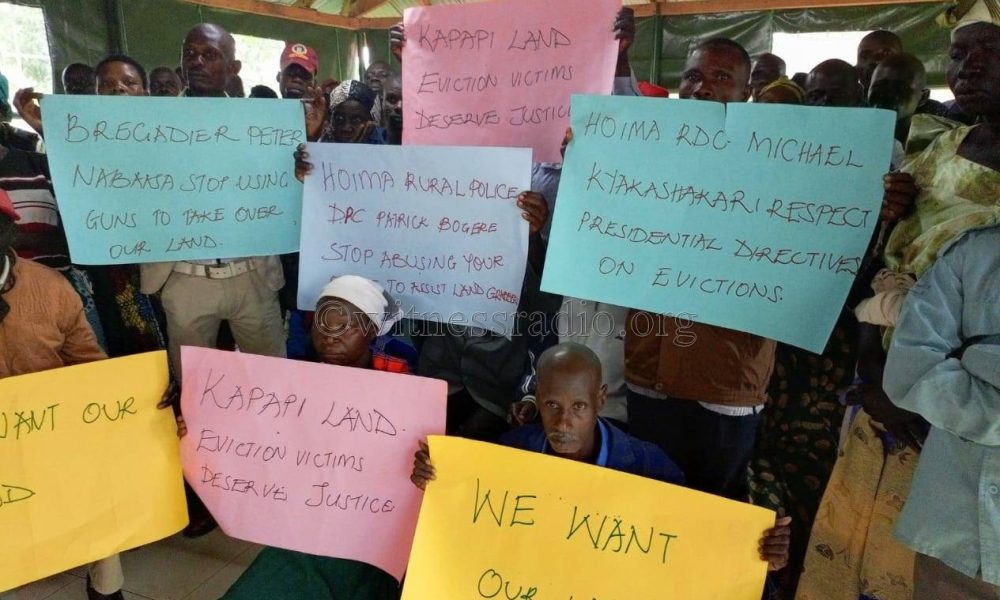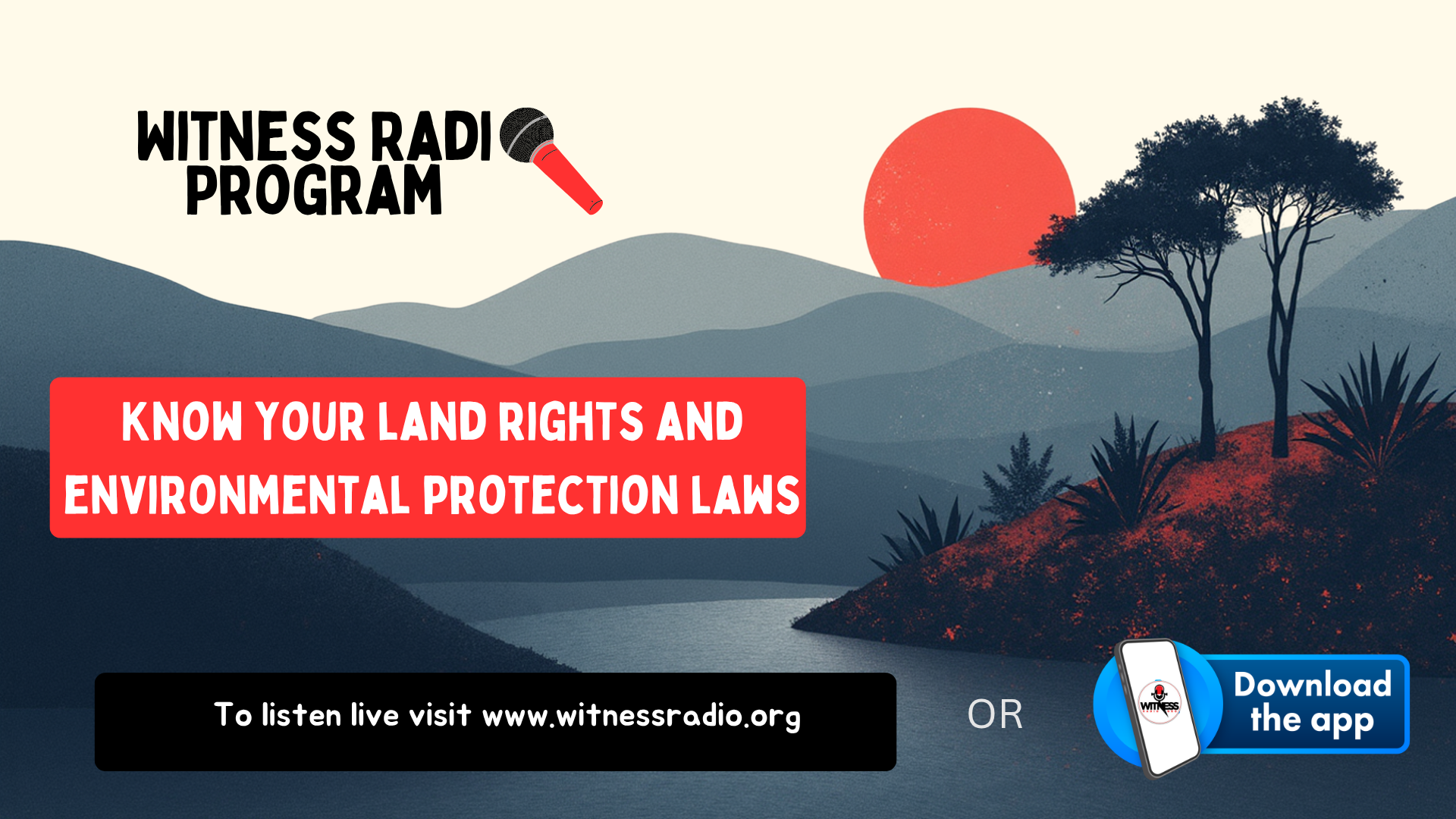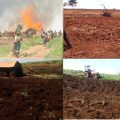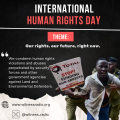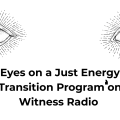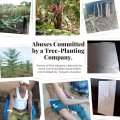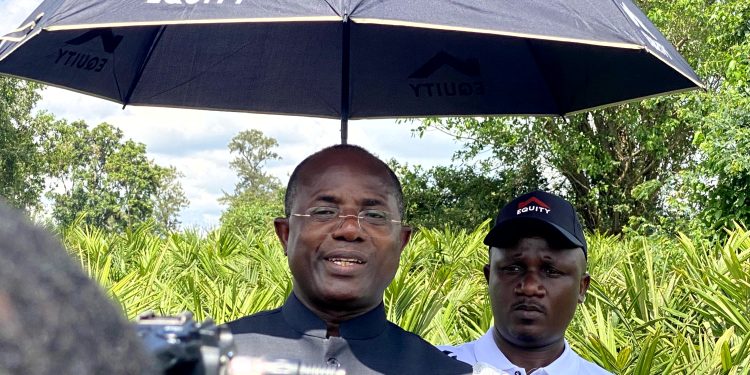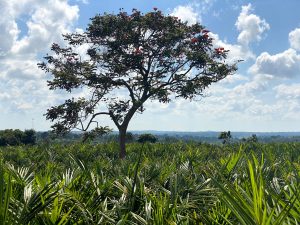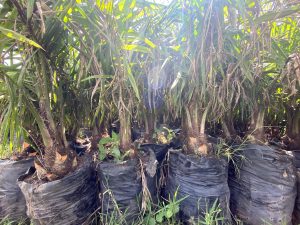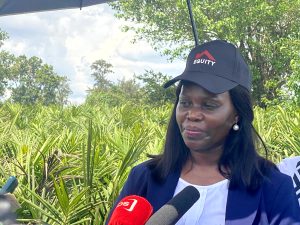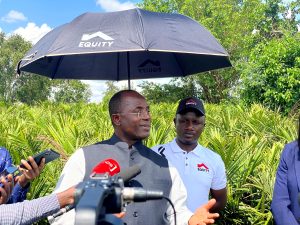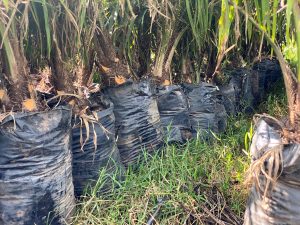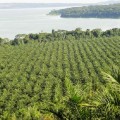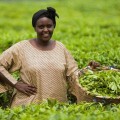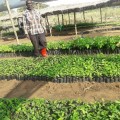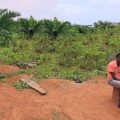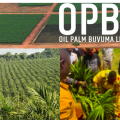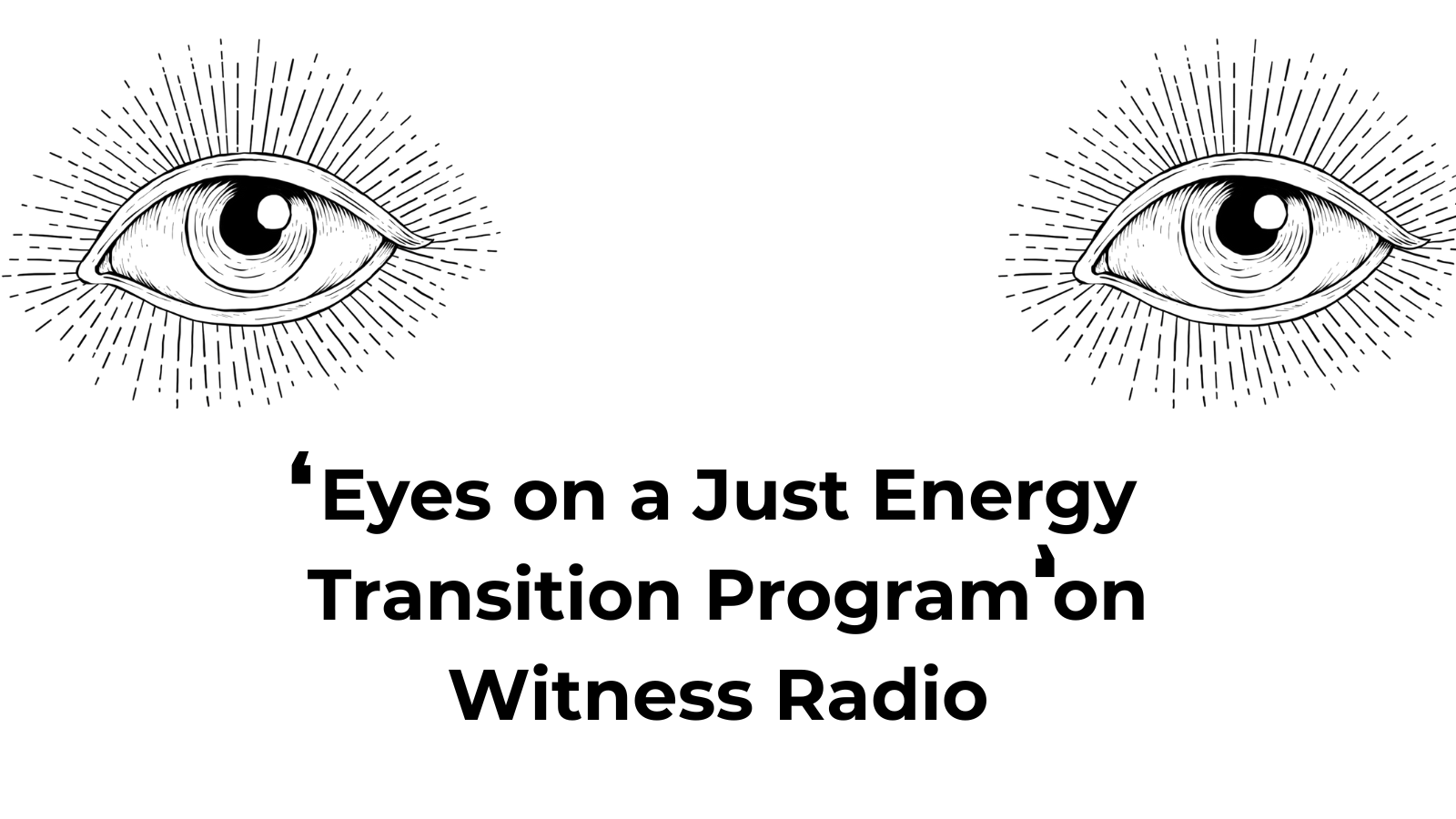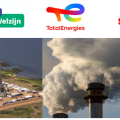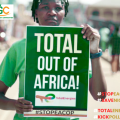By Witness Radio team
One of the East Africa Crude Oil Project (EACOP) victim communities in Hoima district has run to Hoima high court challenging a forceful and violent eviction which pushed them off their land, asserting that it was very illegal and unconstitutional and subjected them to degrading treatment.
The Kapapi community, as commonly referred to, is composed of both pastoralists and cultivators that were lawfully living in Waaki North, Kapapi Central, Waaki South, Runga, and Kiryatete villages in Kapapi and Kiganja sub-counties in Hoima district since the 1950s.
In a February 2021 report from Total Energies Uganda, titled “Tilenga Project – Resettlement Action Plan 4,” it identified Kapapi, Runga, Waaki, and Kiryatete villages as areas that will be affected by the proposed Tilenga Feeder Pipeline Component (RAP 4).
The Tilenga feeder pipeline corridor is approximately 95 km long originates from the Tilenga Project Central Processing Facility (CPF), about 8 km northeast of Buliisa town in Buliisa District and 5 km south of the Albert Nile. The purpose and the need for the Tilenga feeder pipeline, according to Total Energies, is to deliver crude oil to the planned refinery in Kabaale and the East African Crude Oil Pipeline (EACOP).
Uganda National Oil Company (UNOC), as the Government nominee, holds a 15% participating interest in the Tilenga project; Total Energies E&P Uganda B.V., the operator, holds 56.67% while the other partner, China National Offshore Oil Corporation (CNOOC) Uganda Limited holds 28.33% shares.
On 10th February 2023 at 1:00 am local time, unidentified dozens of men cladding Uganda Police Force (UPF) and Uganda People’s Defense Force (UPDF) uniforms, together with armed guards from Magnum, a private security company violently evicted over 2,500 locals from 1294.99 hectares of land with no compensation or resettlement, looted animals and food stuffs. The eviction was executed without a court order.
Through their lawyers Arinaitwe Peter & Company Advocates, Mulega Eria and 13 others on behalf of the pastoralists community in a Civil Suit no. 78 of 2023, sued a UPDF Brigadier General. Nabasa Peter, Bogere Patrick, a Hoima Rural District Police Commander, Kyakashari Micheal, the Deputy Resident District Commissioner (RDC) of Hoima district, one Gafayo Ndawula William, Kiiza Nathan Byarugonjo, Oketcha Micheal, Oromo Luzira, Magnum Security company limited, Muhwezi Aston, William Kiiza, Kyamanywa Alex, Wilber Kiiza, Hoima district Land Board and Commissioner land registration among others.
In a second matter, Civil Suit no. 79 of 2023, Ajaruva Uchida and 112 others on behalf of the crop growers community, sued a UPDF Brigadier General Nabasa Peter, Bogere Patrick, a Hoima Rural District Police Commander, Kyakashari Micheal, a the Deputy Resident District Commissioner (RDC) of Hoima district, a one Gafayo William Ndawula, Kizza Nathan Byarugonjo, Oketcha Micheal, Asimwe Moses Byangire, Oromo Luzira and Magnum security company limited among others.
Both communities are accusing the latter of carrying out a forceful and violent eviction from their land, alleging a disregard of lawful procedures driven by a desire to profit from EACOP related projects.
In both suits, both communities demand for several remedies from the courts of law, such as a permanent injunction restraining all defendants and their agents from further interference with their land, an order for an immediate return onto their land, and compensation.
Arinaitwe Peter, one of the lawyers, expressed optimism that Courts would hear the cries of the Kapapi people, who have endured destitution, significant suffering, and displacement, with some living in internally displaced people’s camps following the brutal eviction.
“We are optimistic that the honorable Court will listen to the cries of the Kapapi people. These people are destitute, they have suffered immensely, and some of them are currently residing in internally displaced people’s camps due to a brutal eviction carried out by the individuals mentioned in different suits. Our purpose here is to ensure that their voices are heard, have justice served, and that they are immediately returned to their land while the legal case is ongoing.” Said Mr. Arinaitwe.
Mr. Kataza Samuel, one of the community environmental defenders, called on Hoima Court to expedite the hearing of their matters since many of the residents are undergoing hardships as a result of forceful evictions.
“Our people are enduring immense suffering, with many families torn apart by poverty. They are scattered across in different parts of the country, struggling for survival, while some are forced to live with relatives. Unfortunately, essential services like shelter, food, healthcare, and education for their children remain elusive. We are here to seek justice for our violated rights, and, therefore, we implore Court to intervene urgently,” He added.
As we write this story, the grabbed land continues to be heavily guarded by Uganda People’s Defense Forces (UPDF) Soldiers and Magnum Security Company guards.
Court is yet to fix hearing dates for both suits.
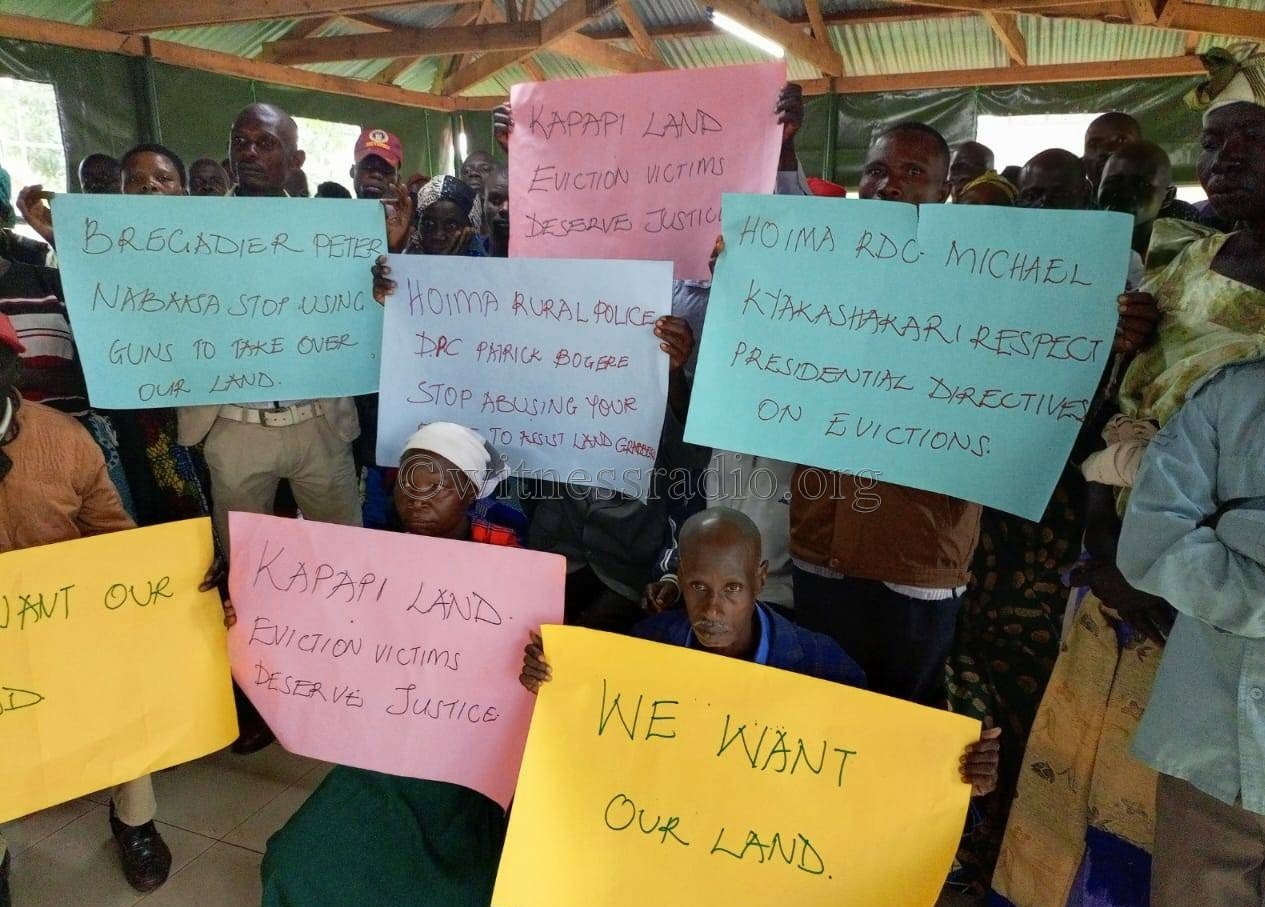
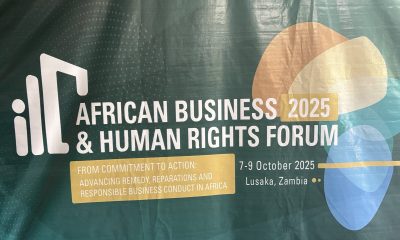
 MEDIA FOR CHANGE NETWORK2 weeks ago
MEDIA FOR CHANGE NETWORK2 weeks ago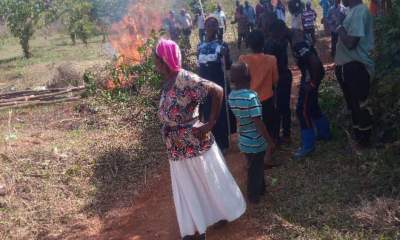
 MEDIA FOR CHANGE NETWORK7 days ago
MEDIA FOR CHANGE NETWORK7 days ago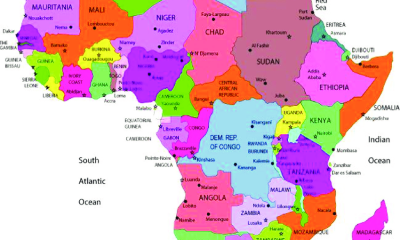
 MEDIA FOR CHANGE NETWORK2 weeks ago
MEDIA FOR CHANGE NETWORK2 weeks ago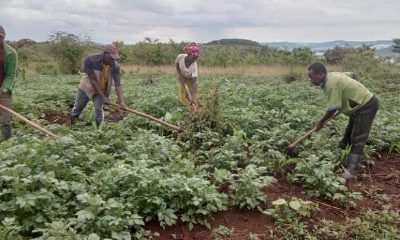
 MEDIA FOR CHANGE NETWORK2 weeks ago
MEDIA FOR CHANGE NETWORK2 weeks ago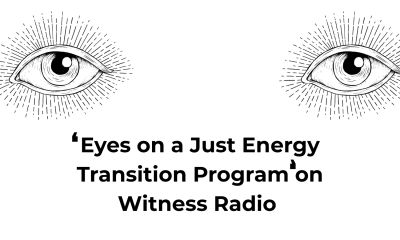
 MEDIA FOR CHANGE NETWORK5 days ago
MEDIA FOR CHANGE NETWORK5 days ago
 MEDIA FOR CHANGE NETWORK2 weeks ago
MEDIA FOR CHANGE NETWORK2 weeks ago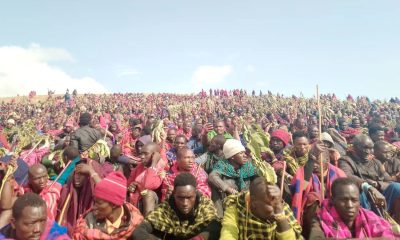
 NGO WORK2 weeks ago
NGO WORK2 weeks ago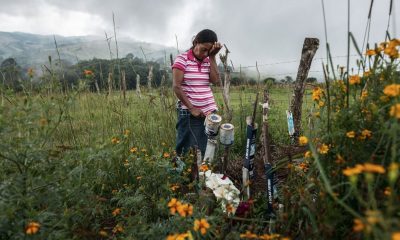
 NGO WORK2 weeks ago
NGO WORK2 weeks ago
